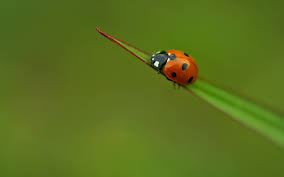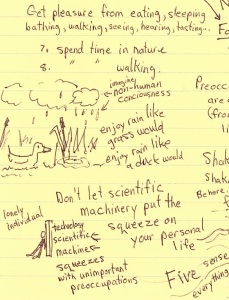
Here’s the thing: If someone says, “The secret to life is...,” that person is unknowingly (or knowingly) misleading. Why?
Because.
It isn’t a secret. If it was a secret, everyone’s secret would be different.
It’s like looking for keys and not finding them even though they’re right under your nose. You’re in a hurry but waste time running around looking for keys and not finding them because you’re in a hurry! You look repeatedly on the table where they should be (and are) but you don’t see them. Why? In desperation you start looking in weird places. So too do people look for enjoyment in weird place when they don’t have to. Enjoyment is right under your nose.
When you finally do find find your keys, you feel extra extra annoyed because they were there all along, and you wonder: “How could I not see them? Am I blind? (No.) Am I an idiot? (Only partly).”
The power is in the focus. It’s a matter of attention. It’s all a matter of awareness.

In the hurry to find what you’re looking for you see with eyeballs but not with brain. Hurry causes stress. Stress causes the release of cortisol in the brain. Cortisol can kill brain cells in the area responsible for memory (Your Amazing Brain). If you add multi-tasking to a frantic searching, you have zero attention (Brain Rules…).

Searching for keys in all the wrong places is like searching for enjoyment. We don’t see what’s in front of us. Enjoyment is simple. It’s so simple that we don’t get it until we do and then we doubt it because we might be expecting something that isn’t so subtle.
If you’re reading this—wherever you are in this world—you’re probably alive. If you’re alive, you’re halfway there, but the other half isn’t easy. Nature isn’t on your side. Nature isn’t on anyone’s side. Nature is cause and effect.
The trouble is that happiness gets tied to desire and expectations. We define happiness as, Wanting what we want and getting what we get and hoping the two coincide.
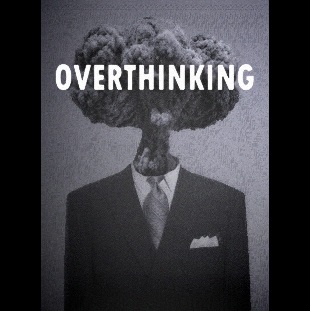 You see, it’s because of our brains. We either over-think and make it complicated, we under-think and act on insane urges or we multi-task and miss everything.
You see, it’s because of our brains. We either over-think and make it complicated, we under-think and act on insane urges or we multi-task and miss everything.
We think, “If I have this (or that), I’ll be happy,” but not only do we think that something outside ourselves will make us happy, we’re drawn to things that actually hurt us.
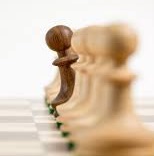 Our brains send messages. Sometimes these messages are destructive—ask anyone in therapy, rehab, prison or who is about to blow himself up. Not only do we deceive ourselves, other people trick us with their deceptions and w can become like pawns in the game of life, sacrificed for someone else’s idea of enjoyment.
Our brains send messages. Sometimes these messages are destructive—ask anyone in therapy, rehab, prison or who is about to blow himself up. Not only do we deceive ourselves, other people trick us with their deceptions and w can become like pawns in the game of life, sacrificed for someone else’s idea of enjoyment.
So, what’s the answer?
 Picture brain messages symbolically like they do in cartoons with a devil-you and an angel-you on each shoulder arguing their case for you to decide (see Internal Multitudes and Enjoyment Decisions). The devil-you often wins and when he does, he gets harder to stop.
Picture brain messages symbolically like they do in cartoons with a devil-you and an angel-you on each shoulder arguing their case for you to decide (see Internal Multitudes and Enjoyment Decisions). The devil-you often wins and when he does, he gets harder to stop.
Pleasure and habit are linked. Cells that fire together, wire together. In other words: Habits are hard to break (see: It’s not me. It’s my brain.)
It’s like a battle between, on one side, the Rolling Stones at 120 decibels singing “Sympathy For The Devil”, “Please allow me to introduce myself, I’m a man of wealth and taste,” and on the other side, a string quartet playing “Hallelujah” in your living room.! Who do you think will win?
 On one side are symbols of light, innocence and wholesomeness (sappy?) and on the other, just the opposite (exciting?). In the battle between it comes down to focus. What do you choose to enjoy?
On one side are symbols of light, innocence and wholesomeness (sappy?) and on the other, just the opposite (exciting?). In the battle between it comes down to focus. What do you choose to enjoy?
Enjoyment of life and of healthy beauty is decided by awareness of what “you” choose to pay attention to.
 Do you take the gentle path of life as represented in Wordsworth’s poem, “I wandered lonely as a cloud; That floats on high o’er vales and hills; When all at once I saw a crowd; A host, of golden daffodils“? Or is that boring? “Daffodils? You’re kidding!”
Do you take the gentle path of life as represented in Wordsworth’s poem, “I wandered lonely as a cloud; That floats on high o’er vales and hills; When all at once I saw a crowd; A host, of golden daffodils“? Or is that boring? “Daffodils? You’re kidding!”
 Do you prefer your entertainment on the excitingly evil side? How about delightful depravity and edgy cruelty that’s funny too? What’s your pleasure? Do you choose a quiet read, a walk in the park, a pint with a friend, or ‘gorified’ death in a Zombie Apocalypse?
Do you prefer your entertainment on the excitingly evil side? How about delightful depravity and edgy cruelty that’s funny too? What’s your pleasure? Do you choose a quiet read, a walk in the park, a pint with a friend, or ‘gorified’ death in a Zombie Apocalypse?
It’s a tough decision for most people.
Subtlety is missed by mobs fed on chatter, drugs, violence, convenience and bread and circuses. A butterfly caught in a web is easily killed by the spider. It takes heart and courage and a focus on what is wholesome to overcome dark greed.
 Wholesome isn’t a word used much these days. It alludes to marketing all-natural breakfast cereals and family values but back in the year 1200 wholesome meant “of benefit to the soul.” It comes from the word “whole” meaning “healthy” (undamaged, entire, safe) and “-some” meaning “tending to” (Etymology Dictionary).
Wholesome isn’t a word used much these days. It alludes to marketing all-natural breakfast cereals and family values but back in the year 1200 wholesome meant “of benefit to the soul.” It comes from the word “whole” meaning “healthy” (undamaged, entire, safe) and “-some” meaning “tending to” (Etymology Dictionary).
Wholesome relates to “Hallow!” as in Hello! Health! Holy! It’s a greeting and a call to health and Hallelujah! (Word Origins).
Imagine: You go to a concert in a high school auditorium but your brain is messed up with problems. You miss the first part before your spirit gets caught up in the music and then… and then…
A switch to whole.

You see where you are. Your face relaxes. Totally still you breathe and your eyes… your eyes! they widen and go slack. You see as if you were life itself.
What was a disheveled auditorium with flickering light bulbs about to die and chattering nuisance people becomes… beautiful. You enter the stream. You are empty absolutely. You know that life runs along like a runaway train as you float in your body behind a face.

You look out of yourself self-aware. This moment is captured in the very being of yourself – not as an ego, but as… a spirit.
The purest illuminations come unsought.
You are transfigured but no one knows. How could they? You are alone in yourself but through the eyes of another you see the importance of all this. It’s in relationships and immersion. You’ve put your will to the side and thrown yourself out.
Such is enjoyment seeing.
Cease demanding that life conform to desire. See daffodils and ignore zombies (they aren’t real).






 A philosopher of enjoyment memorizes
A philosopher of enjoyment memorizes 


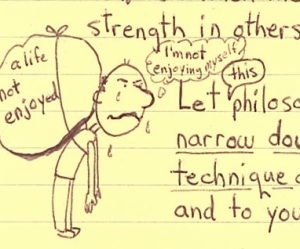



 Picture unhappiness as a woman determined to be unhappy. She’s your personal antagonist and her breath is not good. Now, imagine playing a game of Snakes and Ladders (aka Chutes and Ladders) with her. Will it be enjoyable? Most people would think not, but for a philosopher of enjoyment, it’s a challenge.
Picture unhappiness as a woman determined to be unhappy. She’s your personal antagonist and her breath is not good. Now, imagine playing a game of Snakes and Ladders (aka Chutes and Ladders) with her. Will it be enjoyable? Most people would think not, but for a philosopher of enjoyment, it’s a challenge.

 If you want to will yourself happy, you need the courage and freedom to become nothing but an impersonal consciousness. This isn’t to say that you don’t care for others, it’s just that you are willing to be light as a feather. To be nothing-but-an-impersonal-consciousness means that you excuse yourself from self-importance.
If you want to will yourself happy, you need the courage and freedom to become nothing but an impersonal consciousness. This isn’t to say that you don’t care for others, it’s just that you are willing to be light as a feather. To be nothing-but-an-impersonal-consciousness means that you excuse yourself from self-importance.

